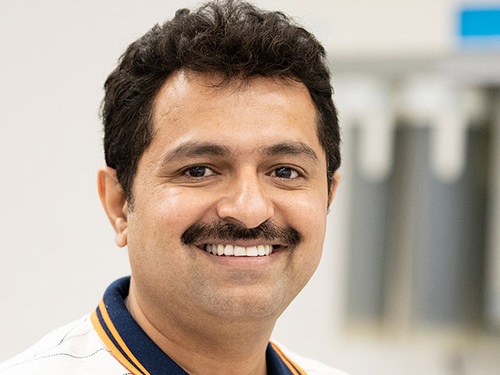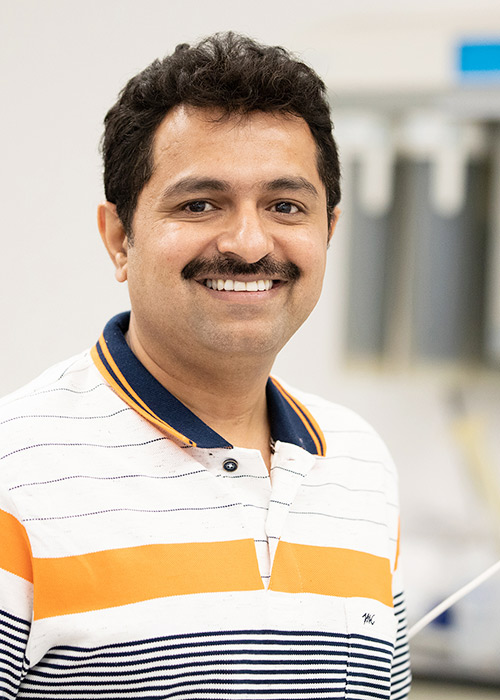Featured Customer: Sameer Kale, Ph.D.

Featured Customer Sameer Kale traveled all the way from Serum Institute of India in Pune to attend LSU in Santa Barbara. The scope of the Serum Institute’s contributions to world healthcare—saving millions of lives each year—is amazing, and we are proud to be part of Sameer’s story.
Sameer relates:
I come from Akola, a small town in Maharashtra, India. My father is an agronomist and my mother is a homemaker. My wife is a virologist working in the field of HIV research, and with a degree in biochemistry, I, too, was determined to work in the field of biomedical research and life sciences. My scientific career began at India’s National AIDS Research Institute with a senior research fellowship awarded by the Indian Council of Medical Research (ICMR). This experience as a molecular biologist in the field of infectious diseases opened the gates for me to the Serum Institute of India (SIIPL), where my first assignment involved developing molecular techniques for the identity and release of a proprietary viral vaccine.
SIIPL is ranked as India's No. 1 biotechnology company, manufacturing highly specialized, life-saving biologicals like vaccines, using cutting-edge genetic- and cell-based technologies, antisera and other medical specialties. SIIPL is also the world’s largest WHO-accredited vaccine manufacturer, producing more than 1.5 billion doses that are sold in 170 countries across the globe. It is estimated that about 65% of the children in the world receive at least one vaccine manufactured by Serum Institute. I consider myself fortunate to have been associated with SIIPL for last 14 years and contributing in this capacity to global healthcare initiatives.
Currently I am placed as manager in the Quality Control Lab for analysis of polysaccharide-protein conjugate vaccines and recombinant proteins as per the relevant national and international regulations; I serve as team lead for polysaccharide-conjugate vaccines. I am also involved in the analysis of a novel, glyconjugate vaccine comprised of multiple serogroups. Release tests include characterization, potency assessment, impurity profiling, identity, safety and stability characterization. My team employs multiple techniques for physico-chemical characterization of the glycoconjugate such as biochemical tests, ELISA, ion-exchange chromatography and HPLC-SEC-UV-MALS-RI analysis.
Controlling the size and molecular weight of the molecules is essential in producing a stable vaccine product. During the development of a novel glycoconjugate, I first came across SEC-MALS in the scientific literature. This encounter triggered lively technical discussions and the conclusion that SEC-MALS is the method of choice for detailed determination of the size, shape, molecular weight and polysaccharide-protein ratio of processed polysaccharides and protein-polysaccharide conjugates. In addition to characterization tasks, I find SEC-MALS data useful for shelf life and temperature stability studies. We are also using SEC-MALS to establish in-process controls for biological manufacturing processes and in lot release, for compliance with regulatory standards. Looking ahead, I am proposing the use of SEC-MALS to characterize lot-to-lot consistency, as well as developmental studies on controlled manufacturing processes.
In addition to science, I like to travel and explore: to experience different destinations for scenic beauty, and different cuisines for tickling my taste buds. Attending Light Scattering University in Santa Barbara, California has combined all these pleasures in one trip!

Wyatt's DAWN and Optilab SEC-MALS instruments have opened a new avenue of research for me in the field of glycoconjugates and their characterization. It has helped me to understand complex biomolecules in a practical way. The training and support received at Wyatt Technology's Light Scattering University is noteworthy.
